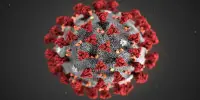Genetics can play a significant role in the response to treatment for obesity. Research has shown that certain genetic variations can affect a person’s metabolism, appetite, and the way their body stores and burns fat. These genetic factors can make weight loss more difficult for some individuals, and certain treatments may be more or less effective depending on a person’s specific genetic makeup. However, it’s important to note that genetics is just one of many factors that can influence a person’s response to treatment for obesity, and lifestyle changes such as diet and exercise are still the foundation of any successful weight loss program.
A study conducted by the University of Galway and Brunel University London discovered that patients with severe and complicated obesity respond differently to a dietary weight loss program based on their genes.
The GERONIMO project investigated patients attending the obesity clinic at Galway University Hospital who were undergoing an intensive short-term program of medically supervised dietary restriction in an attempt to reverse some of the medical problems associated with severe obesity.
Mechanistic studies like these, which help us understand why some people respond better than others to the same intervention, are really important in providing more personalised and effective treatments for people with obesity.
Professor Francis Finucane
During the study, scientists were able to examine small variations in hundreds of genes known to be associated with obesity. A “genetic risk score” was calculated for six different obesity-related traits by combining information from these measured gene variations.
“Mechanistic studies like these, which help us understand why some people respond better than others to the same intervention, are really important in providing more personalized and effective treatments for people with obesity,” said Professor Francis Finucane, senior lecturer in the School of Medicine at the University of Galway and Consultant Endocrinologist at Galway University Hospitals, who led the clinical study. We know that heritability and ‘genetics’ play a huge role in influencing body weight and the risk of obesity-related complications like diabetes in general, but identifying the genes that account for this risk has been difficult.”

Professor Alex Blakemore, Professor in Human Genomics at Brunel University London, said: “No-one chooses their genes, so, as a society, we need to recognize that when it comes to maintaining a healthy weight, the challenge is greater for some people than for others. This study reveals just a small part of the picture of how our genes can help or hinder us in reaching our health goals.”
The GERONIMO project involved 93 patients who volunteered for the study. They were monitored while taking part in a meal replacement programme. Their average body mass index at the start of the study was 52kgm-2, which means that they weighed more than twice their maximum ‘healthy weight’. The participants lost an average of 16% of their body weight, or 21kg after 24 weeks.
The study discovered that the “waist hip ratio” genetic risk score, which measures a person’s genetic proclivity to store central or abdominal fat, was associated with less weight loss after the intervention.
Professor Finucane said of the next steps in the research, “This work is exciting and important because it is the first Irish study to demonstrate a genetic effect on the response to an obesity treatment.”
The genetic effects we discovered here were subtle, but we believe it would be worthwhile to investigate further, in larger studies and with various obesity treatments, such as drug therapy or “metabolic surgery.”














